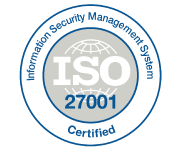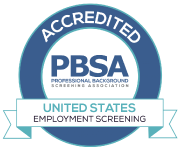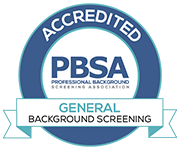See What's Trending In The Background Check Industry
The Evolution of EBS
Updated:
 Employee background checks, pre-employment screening, and background screening are all terms that have changed and evolved over time. As technology has progressed, screening has indeed become standard, and the types of screenings that are deemed imperative have changed. Regulations like PIPEDA and Bill 113 regarding police clearance checks have become necessary to protect an applicant’s rights.
Employee background checks, pre-employment screening, and background screening are all terms that have changed and evolved over time. As technology has progressed, screening has indeed become standard, and the types of screenings that are deemed imperative have changed. Regulations like PIPEDA and Bill 113 regarding police clearance checks have become necessary to protect an applicant’s rights.
While employers undoubtedly have a responsibility to respect the privacy rights of applicants and employees alike, they also have a duty to protect their existing workforce and ensure the quality of the employees they intend to hire. Criminal background checks should essentially be mandatory for all employees, and yet high employee turnover tends to discourage the utilization of these important searches. In the retail space alone, internal theft accounts for a significant percentage of lost product. However, because retention rates are so low, managers find it difficult to justify the costs associated with hiring.
From a fiscal analysis perspective for a minimum wage employee, one might say that the costs of running a criminal check outweigh the risk it mitigates. However, any applicant interacting with the public who has a potential to commit theft, violent acts, or other acts that would endanger a client should at least have a criminal clearance. When we consider the cost and impact of a customer complaint, potential customer injury, or internal theft, a criminal check becomes an investment in your organization’s health instead of a cost.
One must also consider the various registries that store data on criminal activity and arrest records. Perhaps someone may have been charged but not convicted of an offense, or they may have been a victim in an incident and their name is listed. A national search may yield no results, but a local police search might. There are many variables to consider once you have determined that an applicant will move on to the next stage of the interview process.
 Without doing a criminal and reference check and verifying their education and employment, how can you trust that someone is who they say they are? True, a person’s cheques and direct deposit will only be paid to the identity they have submitted, but there is the possibly that they have requested cheques in a name other than their own. Technology has resulted in a plethora of false IDs. A background check is insurance not only for an employer but also for any potential victim of identity fraud. In an industry with high employee turnover, identity fraud and non-disclosure of a criminal record would, in fact, be far more likely than in an environment with long-tenured employees.
Without doing a criminal and reference check and verifying their education and employment, how can you trust that someone is who they say they are? True, a person’s cheques and direct deposit will only be paid to the identity they have submitted, but there is the possibly that they have requested cheques in a name other than their own. Technology has resulted in a plethora of false IDs. A background check is insurance not only for an employer but also for any potential victim of identity fraud. In an industry with high employee turnover, identity fraud and non-disclosure of a criminal record would, in fact, be far more likely than in an environment with long-tenured employees.
Background screening is an insurance policy protecting yourself, your staff, and any potential customers.
ISB Global Services Offerings
As employee background checks and identity verification continue to evolve, it is essential to align with a company that stays at the forefront of these changes. ISB Global Services is a pioneer in this field, constantly adapting and implementing innovative solutions to meet the growing needs of businesses and organizations. By offering thorough and efficient background check services, ISB assists companies in making well-informed hiring decisions. Trusting ISB Global Services means not just keeping pace with the evolution of background checks, but staying a step ahead in securing the integrity and success of your workforce.




